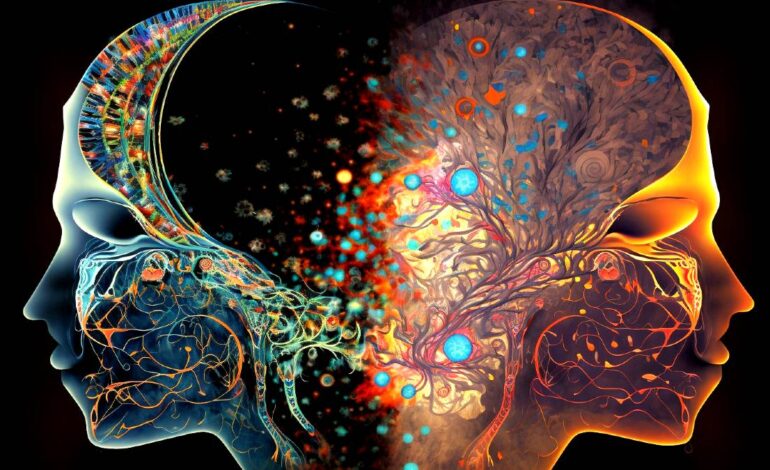The Mind-Body Connection: Your Health’s Secret Weapon

The Profound Mind-Body Connection: How Your Mental & Emotional State Impacts Physical Health
We often treat our minds and bodies as separate entities – thinking of mental health as something distinct from physical health. But increasingly, research and a growing understanding of how the human body functions are revealing a deeply interconnected relationship between them. This connection, often referred to as the “mind-body connection,” demonstrates that our thoughts, feelings, beliefs, and emotions have a tangible impact on our physical wellbeing – and vice versa.
Understanding the Basics: What is the Mind-Body Connection?
At its core, the mind-body connection acknowledges that our mental and emotional states aren’t just “feelings”; they are powerful forces that influence physiological processes. It’s not about mystical or spiritual concepts (though those can certainly play a role for some). Instead, it’s rooted in biology and neuroscience. Our brains communicate constantly with the rest of our bodies through a complex network involving hormones, neurotransmitters, and the nervous system. When we experience stress, anxiety, or other negative emotions, these communication pathways are affected, triggering physical responses.
The Science Behind the Connection: How it Works
Let’s break down some of the key mechanisms at play:
- The Nervous System: The autonomic nervous system (ANS) has two main branches: the sympathetic (“fight or flight”) and parasympathetic (“rest and digest”) systems. Stressful situations activate the sympathetic nervous system, releasing hormones like cortisol and adrenaline. While these are helpful in short bursts for responding to danger, chronic activation can lead to a range of health problems.
- Hormones: Cortisol, often dubbed the “stress hormone,” plays a crucial role in regulating metabolism and immune function. Chronically elevated levels due to persistent stress can suppress immunity, increase inflammation, and contribute to metabolic disorders. Similarly, imbalances in other hormones like serotonin and dopamine – which are heavily influenced by mood and mental state – impact everything from sleep and digestion to pain perception.
- Neurotransmitters: These chemical messengers transmit signals between nerve cells. The levels of neurotransmitters like serotonin (associated with happiness and wellbeing) and GABA (an inhibitory neurotransmitter that promotes relaxation) can be significantly impacted by stress, anxiety, and depression. Imbalances here contribute to a variety of physical symptoms.
- Inflammation: Chronic inflammation is now recognized as a root cause for many diseases – heart disease, diabetes, arthritis, even some cancers. Studies show a strong link between chronic stress, negative emotions, and increased inflammatory markers in the body.
Specific Examples: The Impact on Physical Health
The mind-body connection isn’t just a theoretical concept; it manifests in very real physical health outcomes. Here are some examples:
- Chronic Pain: Pain and mental state are inextricably linked. Depression, anxiety, and stress can amplify pain signals and make them harder to manage. Conversely, chronic pain can lead to depression and anxiety, creating a vicious cycle.
- Gastrointestinal Issues: The gut-brain axis is a well-established pathway of communication between the brain and the digestive system. Stress and anxiety can disrupt gut motility, leading to issues like irritable bowel syndrome (IBS), bloating, constipation, or diarrhea.
- Cardiovascular Health: Chronic stress increases blood pressure and heart rate, putting strain on the cardiovascular system. Research suggests that long-term stress contributes to an increased risk of heart disease and stroke.
- Immune System Function: As mentioned earlier, chronic stress suppresses immune function, making you more susceptible to infections and slowing down recovery from illness.
- Autoimmune Diseases: There’s growing evidence suggesting a link between mental health and autoimmune diseases like rheumatoid arthritis and lupus. Stress can trigger flare-ups in these conditions.
- Skin Conditions: Stress and anxiety can exacerbate skin conditions like eczema, psoriasis, and acne.
Cultivating Wellbeing: Strategies to Strengthen the Mind-Body Connection
The good news is that we *can* harness the power of the mind-body connection to improve our physical health. Here are some evidence-based strategies:

- Stress Management Techniques: Practices like meditation, deep breathing exercises, yoga, and mindfulness can help regulate the nervous system, reduce cortisol levels, and promote relaxation.
- Regular Exercise: Physical activity releases endorphins (natural mood boosters), reduces stress hormones, and improves overall health.
- Healthy Diet: Nourishing your body with nutrient-rich foods supports both mental and physical wellbeing. A diet high in processed foods, sugar, and unhealthy fats can negatively impact both.
- Adequate Sleep: Sleep deprivation disrupts hormone balance and impairs cognitive function. Aim for 7-9 hours of quality sleep each night.
- Social Connection: Strong social relationships provide emotional support and buffer against stress.
- Therapy & Counseling: Talking to a therapist can help you process difficult emotions, develop coping skills, and address underlying mental health issues. Cognitive Behavioral Therapy (CBT) is particularly effective for managing anxiety and depression.
- Mindfulness Practices: Paying attention to the present moment without judgment can reduce stress and increase self-awareness.
- Creative Expression: Engaging in activities like painting, writing, music, or dance allows you to express emotions and tap into your inner creativity – a powerful tool for emotional regulation.
Conclusion: A Holistic Approach to Health
The mind-body connection is not just a trendy buzzword; it’s a fundamental truth about how our bodies function. Recognizing this interconnectedness encourages a more holistic approach to health, one that prioritizes both mental and physical wellbeing. By addressing our emotional needs, managing stress, and fostering healthy habits, we can unlock the body’s innate ability to heal and thrive.
Ignoring the mind-body connection is akin to treating only half of your health equation. Embracing this understanding allows us to take proactive steps towards greater overall wellbeing—a journey that benefits both our minds and bodies for years to come.



